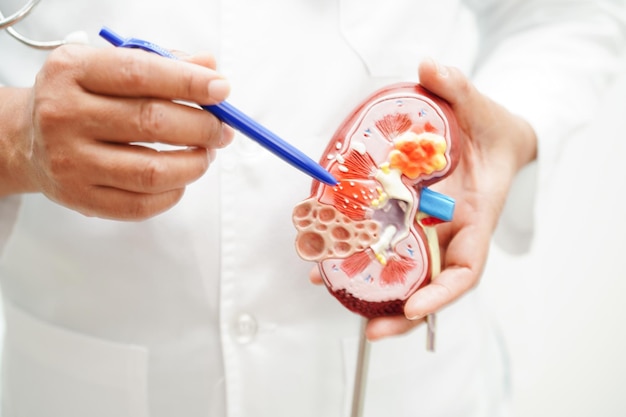
Imagine having to undergo dialysis, a vital treatment needed when your kidneys stop working properly. This tough situation affects many people, regardless of their age or lifestyle. While dialysis is lifesaving, it brings its own set of physical and emotional challenges.
The good news is that reaching this extreme can often be avoided. Keeping your kidneys healthy involves more than just staying away from dialysis. It’s about taking smart, proactive measures right now. You have the ability to influence your kidney health. Let’s dive into effective ways to protect these crucial organs, putting an emphasis on early care and prevention.
Dialysis becomes necessary when your kidneys fail badly and can no longer filter waste from your blood. It’s usually needed due to conditions like diabetes or high blood pressure that damage the kidneys. While dialysis isn’t a cure, it’s vital for maintaining body balance and prolonging life.
There are two main types of dialysis: hemodialysis and peritoneal dialysis. Adapting to either type means adjusting to a regular treatment schedule and making dietary changes. It also requires dealing with side effects like tiredness and muscle cramps, and it needs emotional strength, often with support from healthcare providers and family.
Chronic Kidney Disease (CKD) is a gradual loss of kidney function that often develops without obvious symptoms at first. Early warning signs include tiredness, changes in urination, swelling in the legs or ankles, persistent itching, and shortness of breath.
Recognizing these symptoms early is key for timely intervention. It’s important to understand that CKD is a gradual disease that can lead to complete kidney failure if not properly managed.
Diagnosing CKD usually involves blood and urine tests to measure kidney function indicators like creatinine levels and to spot any abnormalities such as protein or blood in the urine. Main risk factors for the disease include diabetes, high blood pressure, obesity, older age, and a family history of kidney problems.
Regular check-ups are essential, especially for those with these risk factors. Early detection and management can slow the progression of the disease significantly, reducing the need for invasive treatments down the line.
Your kidneys play a crucial role in your overall health, so it’s important to take steps to protect them. By adopting certain lifestyle and dietary habits, you can greatly improve kidney function and health.
Focusing on these areas can have a big impact on your kidney health. Remember, small daily changes can lead to significant improvements in your kidney health and overall well-being.
To sum up, taking care of your kidneys is a key part of staying healthy. Simple, daily actions and informed decisions are vital in this process. By adopting a lifestyle that supports these essential organs and following guidance from healthcare professionals, you can prevent potential health issues and improve your quality of life.
Taking care of your kidneys is a powerful act of self-care. Every positive lifestyle change you make contributes to your long-term health. By consistently focusing on your kidney care and staying aware of your overall wellness, you build a strong foundation for a healthier future.